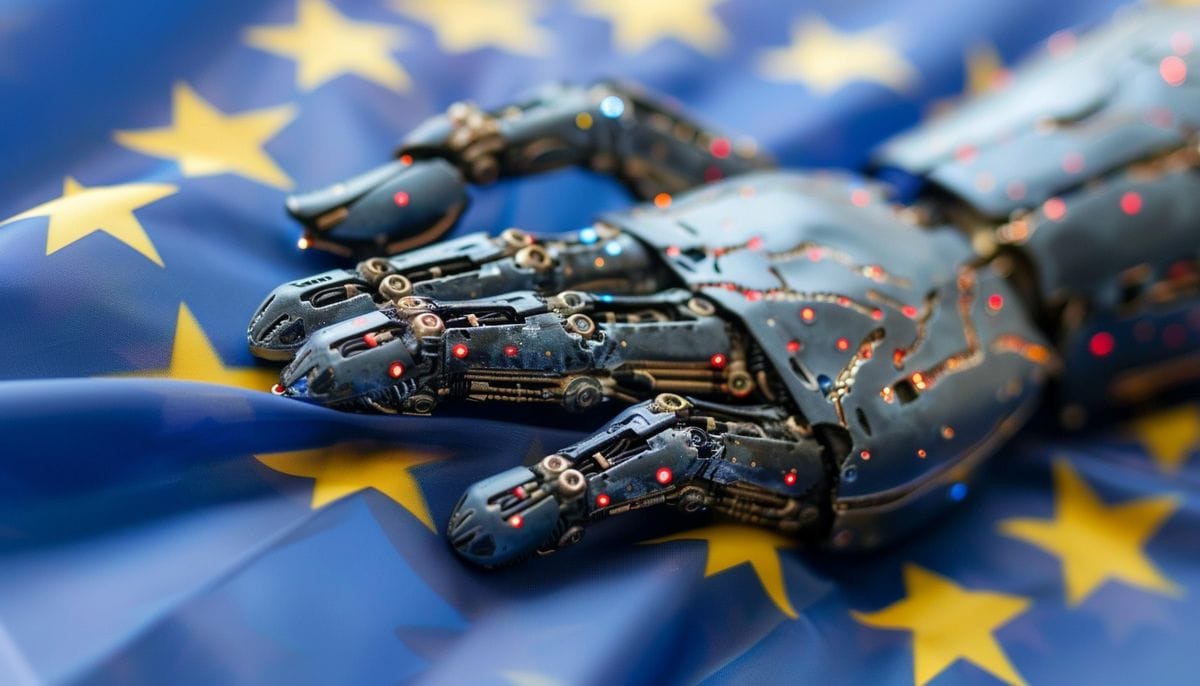The post EU Sets Global Precedent with Comprehensive AI Regulation Act appeared first on Cryptonews.
Details:
In a monumental step towards establishing clear guidelines and regulations for artificial intelligence (AI) technology, the European Union has successfully approved the Artificial Intelligence Act (AIA) after months of intense negotiations among member states, lawmakers, and stakeholders. With 523 votes in favor, 46 opposed, and 49 abstentions, this extensive piece of legislation now stands as Europe's primary framework for governing AI applications within and beyond its borders.
Spearheaded by Brussels, the AIA represents the world's first attempt at drafting harmonious, comprehensive rules addressing various dimensions of AI systems, ranging from their design and deployment to implementation and monitoring. The regulation seeks to balance promoting responsible innovation with safeguarding citizens' fundamental rights, ensuring fairness, privacy, and ethical considerations remain paramount throughout the entire process.
Understanding the far-reaching implications of AI, the EU parliamentarians aimed to establish a robust legal foundation that would foster public trust, maintain competitive advantage, and encourage sustainable economic growth across all industries relying on intelligent algorithms. As Margrethe Vestager, Executive Vice President for A Europe Fit for the Digital Age, stated, "Today's vote sends a powerful message around the globe: We want a human-centric approach to AI policy that maintains our values intact and puts people in control. It's time for Europe to lead the charge in shaping a future driven by safe and reliable AI technologies."
Key provisions embedded within the AIA encompass mandatory risk assessments, stringent transparency requirements, and rigorous testing methodologies to ensure safety and accountability standards for high-risk AI systems. Applications falling under this category span critical domains such as healthcare, transport, energy, and defense, necessitating meticulous evaluation prior to large-scale rollouts. Furthermore, developers and providers must adhere to strict documentation obligations, outlining every aspect of the AI lifecycle - from conception to decommissioning - to facilitate traceability and auditability.
To prevent discriminatory practices arising from biased data inputs, the AIA mandates regular audits and impact assessments to identify potential sources of bias and rectify them proactively. Additionally, end-users should receive adequate information pertaining to the functionality, limitations, and intended purpose of deployed AI models, empowering individuals to make informed decisions concerning their use.
Significantly, the AIA prohibits entirely certain categories of AI deemed inherently harmful or detrimental to societal wellbeing, notably those manipulating human behavior, exploiting vulnerabilities, or infringing upon privacy rights. Breaches of these restrictions may result in severe penalties amounting to 6% of a violator's total global turnover, reflecting the gravity of misusing advanced technologies capable of adversely affecting millions of lives.
Undoubtedly, the passage of the AIA establishes a firm benchmark for other nations mulling comparable measures to rein in rampant AI innovations and mitigate risks associated with indiscriminate application. Countries like China, Canada, and the United States have been closely observing Europe's progression, recognizing the urgent need for coherent policies that strike an optimal equilibrium between nurturing nascent tech enterprises and protecting citizen interests.
Looking ahead, the successful navigation of complex hurdles along the legislative journey underscores Europe's determination to assume leadership in spearheading responsible AI development and utilization. While numerous challenges lie ahead in implementing the intricate framework, policymakers remain steadfastly committed to refining existing mechanisms, fostering international cooperation, and continually updating the AIA to accommodate evolving technological landscapes.
In summary, the European Union's approval of the Artificial Intelligence Act serves as a watershed moment in crafting a safer, more equitable environment for AI applications worldwide. By embracing foresighted regulation, Europe bolsters its reputation as a bastion of ethical innovation, setting forth a compelling example for governments, businesses, and societies grappling with harnessing the transformative power of artificial intelligence responsibly.



.jpeg)

.jpeg)

.jpeg)

0 Comments